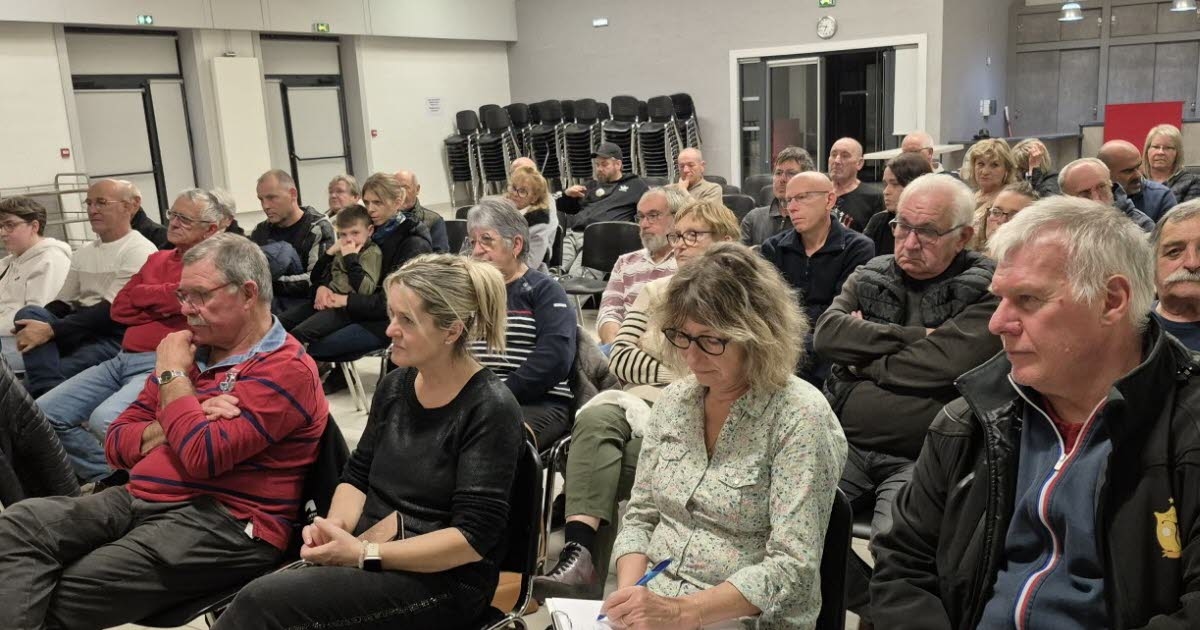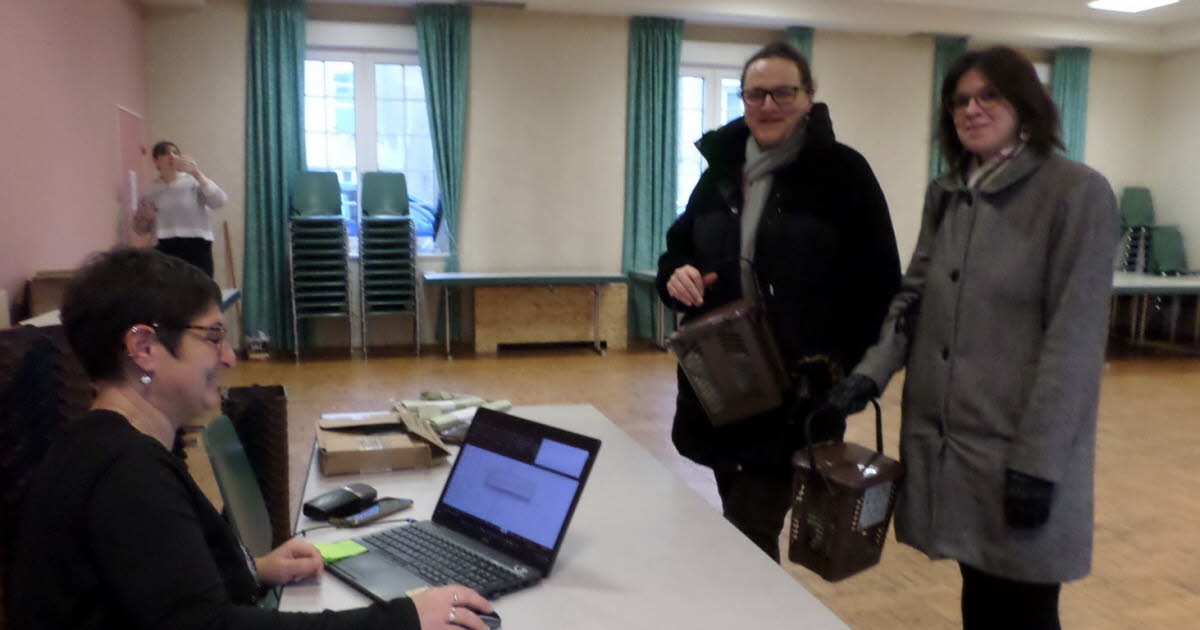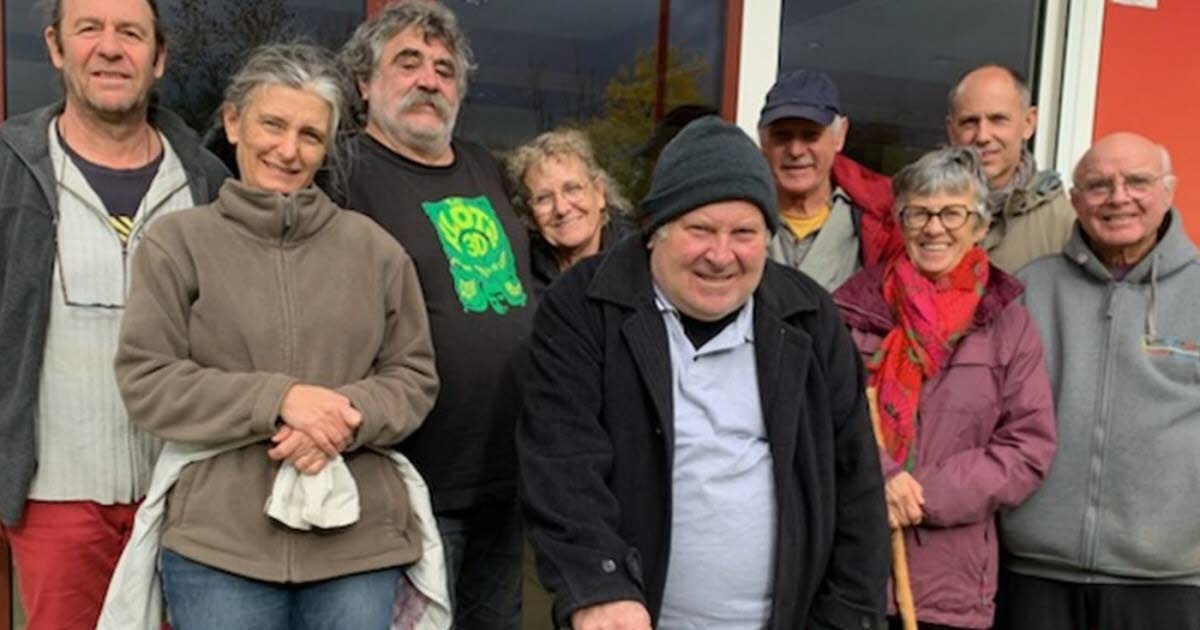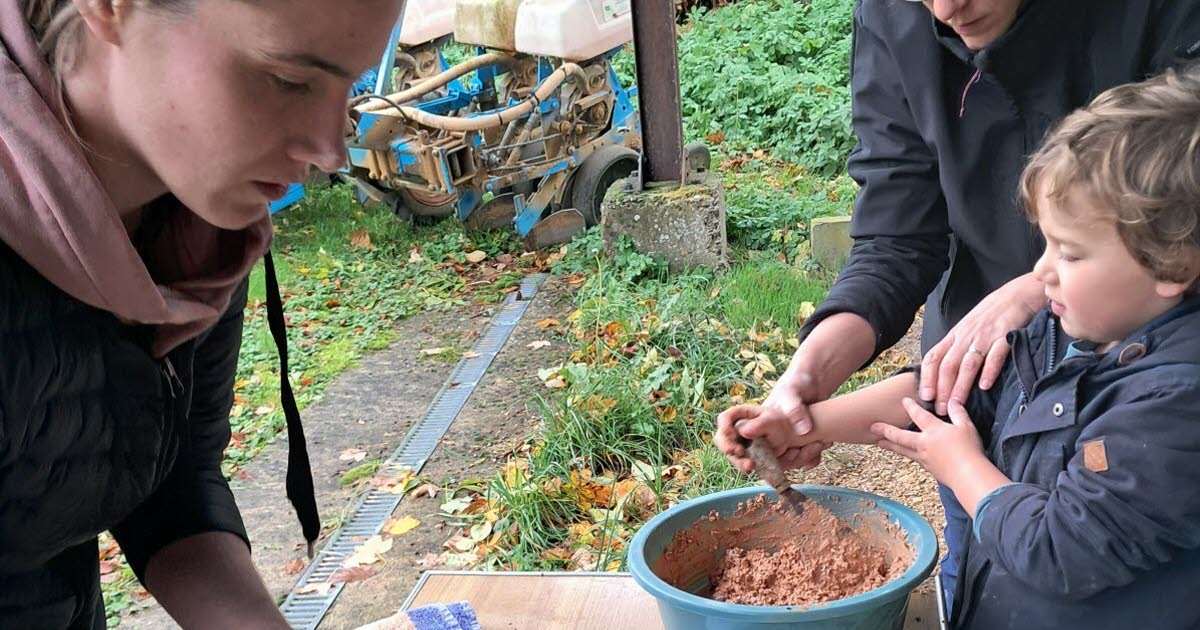Patrick Watson in concert: finding his voice

There are artists like that who wander aimlessly through paradoxes, crafting a dialectic around them, and then see what happens. This is the case with Patrick Watson, a Quebecer born in California, whose name doesn't even hint at the French accent of La Belle Province. Consider this: for twenty years, and even more now, Patrick Watson has been producing impeccable albums, ranging from refined pop with silky melodies to grandiose experiments, enjoying an untarnished reputation in the right circles, yet without ever achieving true popular success.
At least until a French version titled "Je te laisserai des mots" (I Will Leave You Words ). And even then, no, because when the song was released, written specifically for the soundtrack of the film "Mères et Filles " (Mothers and Daughters, 2009), starring Catherine Deneuve, it went largely unnoticed. It's a rather delicate refrain, relatively devoid of lyrics (it was meant to accompany a scene with dialogue), featuring a piano, a string quartet, and Watson's slightly raspy vocals. Ten years later, the Covid-19 pandemic changed everything, with several amateur videos depicting everyday moments accompanied by this melancholic tune. The Covid-induced boredom did the rest, and the song went global, becoming, by the end of 2024, the most streamed Quebec song of all time and the first French-language song to reach one billion streams.
Suddenly, Patrick Watson and his ethereal music, not exactly tailored for the mainstream charts, surpass everyone else: Gims, Stromae, Indila—all meticulously crafted on the playlists of virtually every teenager in France and beyond. And all of them barely (a few hundred) millionaires. In a way, Patrick Watson becomes, by proxy of this miracle song and its epiphanic success, the most famous of the not-so-famous singers. A fine figure indeed? Not in an age where omnipotence is measured in clicks.
Cirque du Soleil
It was in 2003 that people started talking about the Canadian artist, with the album * Just Another Ordinary Day* (2003), whose title, to say the least, hardly exudes ambition or boastfulness. What we first discovered was a heavenly voice, whose quality was either fragile or powerful, even though he hadn't wanted to sing at first – and then one day he heard Björk and changed his mind. Watson was quickly categorized into a then-fashionable group of virtuosos, alongside Sufjan Stevens, Chris Garneau, and Andrew Bird, all reclusive pop artists but undeniable geniuses tackling a demanding, yet always accessible, style of music.
Watson, in addition to being a piano composer, perhaps also flirts somewhat with a form of post-rock, particularly popular in Canada, the icy atmospheres of Icelandic pop, the beautiful cabaret-style vocals of a Rufus Wainwright, or even the seraphic flights of a subdued Jeff Buckley. All essential references, yet largely ignored by just about everyone. For a time, his band was sponsored by Cirque du Soleil, which intended to produce them, but ultimately didn't.
From then on, Patrick Watson would constantly zigzag through a kind of musical equivalent of the European musical serpent: a corridor in which to move with varying degrees of freedom, flexible within a rigid framework. The second album, Close to Paradise , for which he surrounded himself with a full band, could easily be the soundtrack to a Tim Burton-esque cinematic oddity. It notably contains one of Watson's signature songs, "The Great Escape ," where his fragile, Nick Drake-like voice would, this time, break the heart of even the most hardened preacher.
Indoor garden
More experimental, closer to classical, modern, and contemporary music, Wooden Arms (2009) reflects the influences of Debussy, Ravel, Satie, and Arvo Pärt. Like its predecessor, the album was critically acclaimed, even though—or perhaps because—this kind of album is unlikely to open doors beyond critical acclaim. But it did open the door to a successful tour, including stops in China and at the trendy South by Southwest festival in Texas.
This tour prompted a kind of refocusing, a retreat for Watson and his band, who worked on a more intimate album, centered on the essentials: melody and simplicity (though, true to form, there were a few lush arrangements). It was a sort of home-based album, aptly titled *Adventures in Your Own Backyard * (which could be translated as both “Adventures in your garden” and “Adventures in your inner self”). Despite its relative simplicity, the album is perhaps one of Watson's most immediately engaging and pop-oriented. This mirrors the subsequent tour, which relied heavily on the band's internal chemistry and the pursuit of a more direct connection with the audience.
Always committed to taking a step to the side, without ever losing his way, Patrick Watson takes another unexpected turn with Love Songs for Robots (2015), heavily inspired by science fiction, starting with Philip K. Dick and Ridley Scott's Blade Runner adaptation. For the first time, Watson incorporates some electronic elements into his art, which baffles some observers unsure how to interpret it and who criticize him for either overdoing it or simply creating an avalanche of good ideas.
Grief, love, Covid
The effect isn't quite the same with Wave (2019), which returns to a more intimate style, inspired by the losses Watson experienced in previous years—starting with the death of his mother and a painful breakup—and confining itself to an almost amniotic atmosphere. The album also questions his presumed, and rejected, status as a rock star who aspires only to normalcy and strives to conform to it. Consequently, Wave doesn't exactly overflow with joy, but tracks like the closing " Here Comes the River" still offer moments of genuine delight.
In 2021-2022, in the midst of the Je te laisserai des mots wave, Patrick Watson shot in all directions and published a cover of Que reste-t-il de nos amours? by Charles Trenet, initiated by his vision of the Covid pandemic and the lockdown, a very electronic EP inspired by a trip to Portugal, and Better in the Shade , a short album which accentuates the electronic aesthetic, also inspired by the pandemic and the literary works of Samanta Schweblin and Virginia Woolf.
In the meantime, when he is not simply writing soundtracks, such as for Alexandre Aja or specific titles ( Je te laisserai des mots but also Noisy Sunday and Turn Into the Noise for the cult series The Walking Dead ), a rather unbelievable number of his songs are used in series ( Beverly Hills: The Next Generation , Orange Is the New Black , Friday Night Lights , Grey's Anatomy , Ray Donovan …), but also for advertisements (titles like The Great Escape or Lighthouse illustrating campaigns for…Tropicana or Ikea), which never hurts copyright.
I lost my voice
In a final paradox, in 2023, Patrick Watson lost his voice due to a vocal cord hemorrhage. The singer had strained too much during a concert and didn't know if he would ever sing again. He became the singer who didn't want to sing and suddenly couldn't sing at all. A tragedy, tinged with irony: imagine Kylian Mbappé losing a foot… It's worth noting that the album title is inspired by the ironic expression used to describe the surprise of a disaster. Life is just a series of "uh ohs," he says. But he hasn't given up on releasing a new album. Watson was then in a phase of his career where he was multiplying collaborations, which quite naturally led him to the concept of Uh Oh , literally recorded in all four corners of North America (Montreal, New Orleans, Los Angeles, Mexico City) and in Paris: a collaborative album with a host of prominent female singers, mostly from Quebec but not exclusively: November Ultra, Charlotte Cardin, Martha Wainwright, Klô Pelgag, La Force, Solann… Ultimately, the singer would find his voice again and sing with these ladies. At the album's opening, on Silencio , he sings, in a veiled tone: “I lost my voice / Because I spoke too loudly (…) and in this silence, well, I'm doing my best.”
Patrick Watson's metamorphosis, in every sense of the word, perhaps initially a little tentative but steadily intensifying, seems complete here. Perhaps also because it paradoxically intersects with the aspirations for heights and soaring melodies of his early albums. Above all, Uh Oh presents itself as a summation of the inspirations, influences, experiences, and concerns that have shaped the singer throughout his life and career. As if the prospect of definitive silence had led the Quebecer to come full circle.
Kevin Muscat
Patrick Watson – November 5th at the Transbordeur
Lyon Capitale





